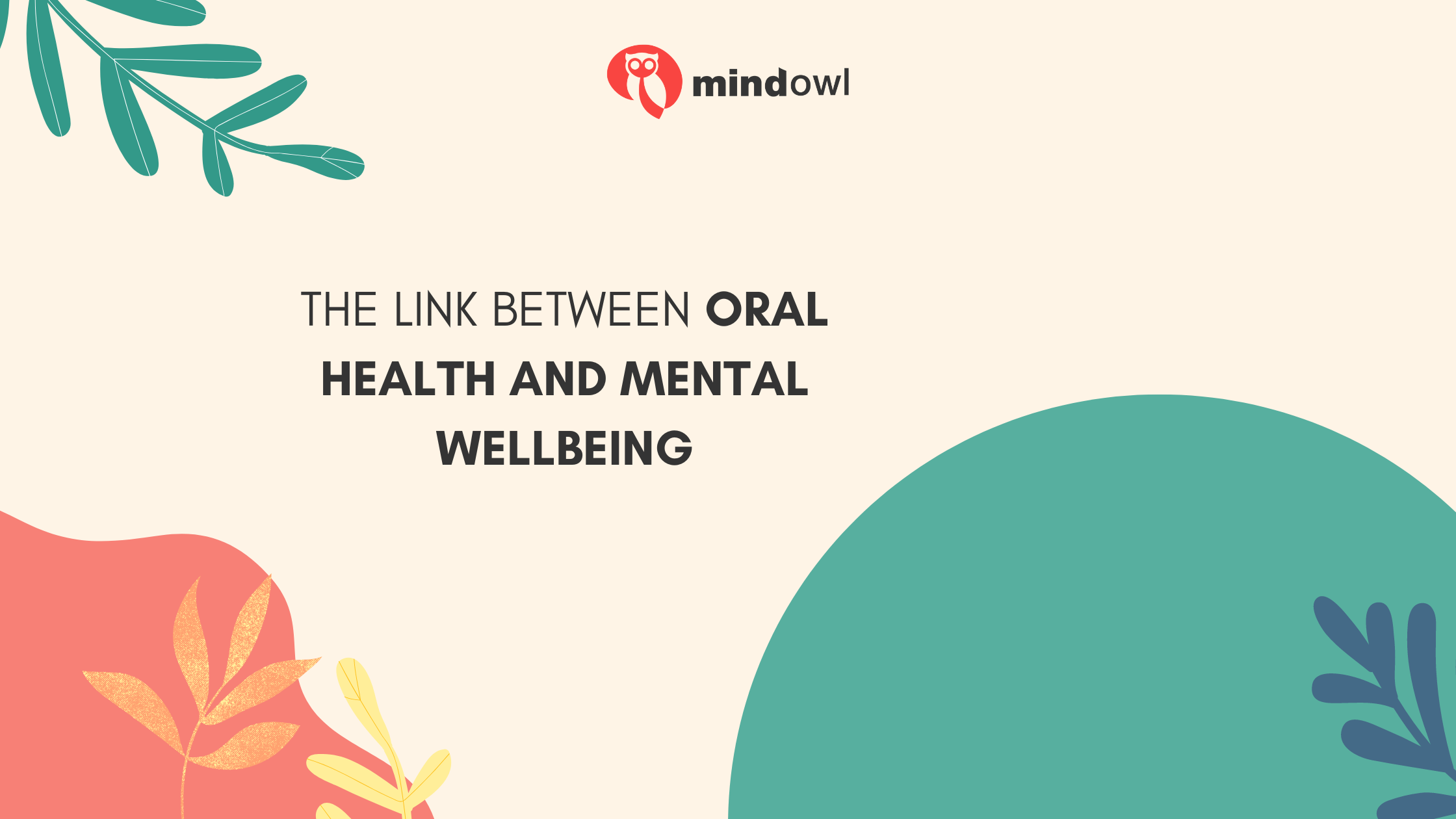Your oral health and mental wellbeing are inextricably linked, and understanding this connection is crucial for maintaining overall health and quality of life. Poor oral health can have a profound impact on your mental state, while mental health issues can also contribute to neglecting oral hygiene.
This comprehensive guide will explore the intricate relationship between these two aspects of your health, shedding light on the various ways they influence each other and providing valuable insights on how to maintain a healthy balance. Read to learn more.

The Impact Of Poor Oral Health On Mental Wellbeing
- Chronic Pain and Discomfort
Poor oral health can indeed lead to chronic pain and discomfort, which can significantly impact your mental wellbeing. This is one manifestation of the connection between your oral health and mental health. Persistent dental problems like cavities, gum disease, or tooth decay can cause excruciating pain that radiates through the mouth and jawline. This constant discomfort can make simple tasks like chewing or speaking extremely difficult, leading to frustration and distress.
Moreover, chronic oral pain can disrupt your sleep pattern, making it challenging to get the rest your body and mind need to function optimally. Lack of quality sleep can further exacerbate mental health issues, creating a vicious cycle of exhaustion, irritability, and increased risk of depression or anxiety. The relentless nature of this pain can also make it challenging to concentrate on work or enjoy leisure activities, leading to a diminished quality of life.
- Self-Esteem and Social Interactions
Your smile is indeed one of the first things that people notice about you, and poor oral health can significantly impact your self-esteem and confidence. Dental problems like discolored, crooked, or missing teeth, as well as persistent bad breath, can make you feel self-conscious and reluctant to engage in social interactions.
This self-consciousness can stem from the fear of being judged or ridiculed for your dental issues, leading to a tendency to avoid social situations altogether. As a result, you may start withdrawing from social circles, limiting your interactions with friends, family, or colleagues. This social isolation can further exacerbate mental health issues like depression and anxiety, creating a vicious cycle that can be challenging to break free from.
- Nutritional Deficiencies
Dental problems can indeed make it challenging to eat certain foods, leading to nutritional deficiencies that can adversely affect both your physical and mental wellbeing. For instance, severe tooth decay or gum disease can make chewing and eating certain hard or crunchy foods excruciating, limiting your dietary choices.
Consequently, you may start avoiding nutrient-rich foods like fruits, vegetables, and lean proteins, leading to deficiencies in essential vitamins, minerals, and other vital nutrients. These deficiencies have been linked to various mental health conditions, such as depression, anxiety, and cognitive impairment. Malnutrition can also contribute to fatigue, mood swings, and a weakened immune system, further compounding the negative impact on your overall health and wellbeing.
The Impact Of Mental Health On Oral Hygiene
- Neglecting Oral Hygiene
Mental health conditions like depression, anxiety, and stress can indeed make it challenging to maintain good oral hygiene practices. When you’re struggling with these issues, even simple tasks like brushing and flossing can feel overwhelming and burdensome. The mental fog and lack of motivation that often accompany these conditions can make it difficult to summon the energy and focus required for consistent oral hygiene routines.
Furthermore, individuals with mental health issues may experience a general lack of self-care, leading to a tendency to neglect personal grooming and hygiene tasks. This neglect can result in the buildup of plaque and bacteria in the mouth, increasing the risk of dental problems like cavities, gum disease, and tooth decay.
- Medication Side Effects
Many medications prescribed for mental health conditions, such as antidepressants and anti-anxiety medications, can have side effects that directly impact oral health. One of the most common side effects is dry mouth, which occurs when these medications reduce saliva production. Saliva is crucial in neutralizing acids and washing away food particles, and a lack of it can create an environment conducive to tooth decay and gum disease.
Additionally, some medications can cause changes in taste perception, leading to a metallic or bitter taste in the mouth. This can make it unpleasant to brush or maintain good oral hygiene habits. It’s essential for individuals taking mental health medications to be aware of these potential side effects and take proactive steps to mitigate them, such as staying hydrated, using saliva substitutes, and maintaining a diligent oral hygiene routine.
- Unhealthy Coping Mechanisms
Individuals struggling with mental health issues may sometimes turn to unhealthy coping mechanisms to manage their symptoms, and these behaviors can have a detrimental impact on oral health. For instance, smoking is a common stress-relieving habit, but it can cause gum disease, stain your teeth, and increase the risk of oral cancer.
Too much alcohol consumption is another unhealthy coping mechanism that can lead to dry mouth, tooth erosion, and an increased risk of oral cancer. Furthermore, individuals dealing with mental health issues may develop poor dietary habits, such as consuming excessive amounts of sugary or acidic foods and drinks, which can contribute to tooth decay and enamel erosion.
These unhealthy coping mechanisms not only exacerbate existing dental problems but also increase the risk of developing new ones. It’s crucial for individuals struggling with mental health issues to seek professional help and adopt healthier coping strategies to avoid compromising their oral health.

The Benefits Of Good Oral Health For Mental Wellbeing
- Improved Self-Confidence
Maintaining good oral health can indeed have a profound impact on your self-confidence and self-esteem. A healthy, radiant smile and fresh breath can provide a significant boost to your overall appearance and presence. When you feel good about the way your teeth and gums look and feel, you’re more likely to carry yourself with confidence in social situations and professional settings.
This newfound confidence can open doors to opportunities and experiences that you may have previously shied away from due to self-consciousness about your oral health. Whether it’s engaging in lively conversations, public speaking, or pursuing romantic relationships, feeling comfortable with your smile can empower you to embrace life’s moments without hesitation.
- Reduced Stress and Anxiety
Being free from dental pain or discomfort can significantly reduce stress and anxiety levels. When you’re not plagued by the constant ache of a toothache or the discomfort of gum inflammation, you can approach your daily activities with a clearer mind and a more positive outlook.
Dental issues can be a constant source of worry and distraction, but good oral health eliminates this burden, allowing you to focus your mental energy on more productive endeavors. Additionally, the relief from physical pain can contribute to better sleep quality, which is essential for managing stress and promoting overall mental wellbeing.
- Better Overall Health
Your oral health is intrinsically linked to your overall physical health, and maintaining good oral hygiene can have far-reaching benefits beyond just a healthy mouth. By keeping your teeth and gums in top condition, you can reduce the risk of developing a wide range of health issues that can impact your mental wellbeing.
For instance, poor oral health has been linked to an increased risk of heart disease, stroke, and respiratory problems, all of which can have a profound impact on your overall quality of life and mental state. Additionally, good oral hygiene can help prevent the spread of harmful bacteria from your mouth to other parts of your body, reducing the risk of systemic inflammation and other health complications.
By prioritizing your oral health, you’re not only safeguarding your smile but also taking proactive steps to maintain your overall physical and mental wellbeing, setting the stage for a healthier and more fulfilling life.
Strategies For Improving Oral Health And Mental Wellbeing
- Establish a Consistent Oral Hygiene Routine
Developing and maintaining a consistent oral hygiene routine is undoubtedly one of the most effective strategies for promoting good oral health and, consequently, better mental wellbeing. Brushing your teeth twice daily for at least two minutes, using a toothbrush with soft bristles and fluoride toothpaste is good practice. This simple act helps remove food particles and plaque that can lead to tooth decay and gum disease.
Additionally, flossing once a day is crucial for removing debris from hard-to-reach areas between teeth, where harmful bacteria can accumulate. Complementing your routine with an antiseptic mouthwash can further enhance your oral hygiene by killing bacteria and freshening your breath.
Moreover, periodic dental visits and professional cleanings are essential for detecting and addressing any potential issues before they escalate. Your dentist will give personalized guidance and recommendations tailored to your specific oral health needs.
- Practice Stress Management Techniques
Stress can have a significant impact on your oral health and mental well-being, making it crucial to incorporate stress management techniques into your daily routine. One effective strategy is mindfulness meditation, which involves focusing your attention on the present moment and acknowledging your thoughts and feelings without judgment. This practice can help reduce anxiety, improve mood, and promote a sense of calm.
Another beneficial technique is deep breathing exercises, which can help lower blood pressure, slow your heart rate, and promote relaxation. Yoga is another excellent option that combines physical movement with breathing exercises and mindfulness, promoting overall wellbeing and reducing stress levels.
Engaging in hobbies or activities that bring you joy and fulfillment can also serve as a potent stress-relief strategy. Whether it’s painting, gardening, reading, or participating in sports, pursuing interests that you find enjoyable and rewarding can help you unwind and recharge, ultimately benefiting both your oral health and mental wellbeing.
- Seek Professional Help
If you’re struggling with mental health issues or oral health problems, seeking professional help is crucial. For mental health concerns, consulting with a licensed therapist or counselor can provide you with the necessary support, guidance, and coping strategies to manage your condition effectively. Additionally, integrating the best supplements for mental health into your routine, as recommended by healthcare professionals, can complement your treatment plan and support overall well-being
These professionals can help you develop personalized treatment plans, which may include therapy, medication, or a combination of both, depending on your specific needs. They can also teach you valuable techniques for managing stress, anxiety, and other mental health challenges that may be impacting your overall well-being.
On the oral health front, scheduling regular appointments with your dentist is essential. Your dentist can conduct thorough examinations, identify any issues, and provide appropriate treatment or preventative measures. They can also offer guidance on proper oral hygiene techniques, recommend dietary adjustments, and provide personalized advice to help you maintain optimal oral health.
Conclusion
Recognizing the intricate link between oral health and mental well-being is crucial for maintaining overall health and quality of life. By prioritizing good oral hygiene practices and seeking professional help when needed, you can not only improve your oral health but also enhance your mental well-being. Remember, a healthy smile and a positive mindset go hand in hand, and by addressing both, you can unlock a path to a happier, healthier life.
MindOwl Founder – My own struggles in life have led me to this path of understanding the human condition. I graduated with a bachelor’s degree in philosophy before completing a master’s degree in psychology at Regent’s University London. I then completed a postgraduate diploma in philosophical counselling before being trained in ACT (Acceptance and commitment therapy).
I’ve spent the last eight years studying the encounter of meditative practices with modern psychology.

